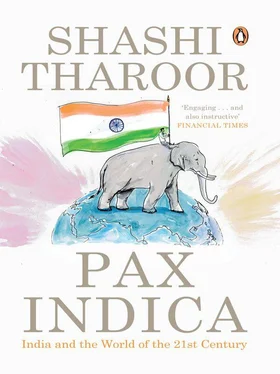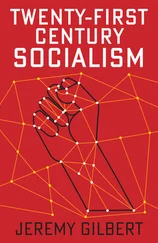Many fear that, if after a few token moves Pakistan lets things return to normal, the world may be forced to admit its own impotence. But we should not be too quick to surrender in the face of the continued intransigence of the killers of innocent civilians. The threat of sanctions could specifically target the Pakistani military, including a ban on the sale of weapons and the provision of any further military assistance to it. The UN could also be required to exclude the Pakistani Army from future peacekeeping operations, a vital source of both prestige and lucre for Islamabad’s military. The world is far from running out of ideas to bring Pakistan’s errant generals to heel.
Of course, such an approach should only be pursued when India judges that there is no prospect of voluntary compliance by Pakistan with the minimum desiderata for peaceful relations on the subcontinent. As these words are written, in early 2012, the atmosphere between the two countries is warming, and there is hope that resort to the drastic measures suggested above may not be necessary.
But if the pressure is not maintained, and if Pakistan is allowed to believe that, with the passage of time, Mumbai will have been forgotten and Islamabad will be off the hook, the consequences would be calamitous, not just for India but also for the world. It would have a chilling result: as long as a military-dominated Pakistan continues, willingly or helplessly, to harbour the perpetrators of Islamist terror, what happened in Mumbai could happen again. Next time, it could be somewhere else.
Of course, exercising the UN option will not be easy. It will require the cooperation of other countries, many of which have shown a propensity to look the other way as Pakistan has misbehaved on terrorism, and it will require us to expend a great deal of diplomatic energy to assemble the necessary majority on the Counter-Terrorism Committee. But the option exists; and if we do not wish to allow Pakistan to believe it can get away with whatever it wishes, and to act as if it can shrug off its complicity in the 26/11 attacks with impunity, we need to remind them that the option exists. A truly comprehensive dialogue is one place where we can make that message clear.
So yes, by all means, let us talk to Pakistan. It is what we say when we talk that will make all the difference.

Pursuing Pakistan at the United Nations may seem a drastic step to propose. But what is dismaying is that all India has asked for from Pakistan is two very simple things: to take action to bring the perpetrators of 26/11 to justice and to take steps to dismantle the infrastructure of terror built up over the last twenty years, from which so many attacks have been launched on our country. This would involve closing down the training camps, genuinely banning these organizations (and not just letting them reinvent themselves under other labels, of which the Arabic language seems to offer an inexhaustible profusion), really closing their bank accounts (again, instead of letting them be reopened under other names) and arresting known inciters of hatred and violence like Hafiz Muhammad Saeed. If these things are done, as Prime Minister Singh said in Parliament — which, in a political system like India’s, is tantamount to a sacred oath — we will meet them more than halfway. But that first step has not been forthcoming.
The irony is that, as long as Manmohan Singh remains in office, Pakistan has in New Delhi the most peace-minded Indian prime minister that Islamabad could ever hope for. And yet they have failed to give him enough for him to be able to move forward, and march, as he manifestly wishes to, in the direction of amity. Instead, India has been faced with the extraordinary acquittal of Hafiz Muhammad Saeed, the result of a very feeble case mounted by the reluctant government in Islamabad, with the judge concluding that the UN Security Council’s banning of Jamaat-ud-Dawa has no validity in Pakistan, and that therefore its leader is free, because the organization is not banned. For a high court in a United Nations member state to cock a snook when the Security Council proscribes an organization that is guilty of terrorist actions, and for the Pakistani legal system, apparently with no particular countervailing pressure from the civilian government, to say, in effect, that Pakistan doesn’t really take this requirement very seriously, is mind-boggling.
The two countries even had a bilateral agreement before 26/11, which established a joint working group on terrorism, meant to be a mechanism for information sharing. Not one useful piece of information came India’s way on that joint working group. The terrorists came from the other side of the border, but not the information. India’s experience merely confirmed that such mechanisms will only work where there is genuine goodwill, where there is no mistrust, where there is a basic understanding and cooperation. Where those ingredients are missing, it becomes impossible for Indians of good faith to rely on a duplicitous Pakistan.
This is why I fear there is as yet no substitute for exacting compliance with the existing international requirements. Security Council resolution 1373 is a very good example. It has very specific requirements — freezing financial transfers, intercepting arms flows, reporting on the movements of suspected terrorists. India has been very proud of the fact that it has been in full compliance with the resolution’s requirements, and it has submitted complete reports to the Counter-Terrorism Committee. How can the world say that one country, Pakistan, will get a free pass on these obligations, and then be taken seriously?
Pakistan’s defiance is partially based on the confidence engendered by its nuclear deterrent capability. This confidence could prove negative in its effects, prompting its military brass to launch a Kargil infiltration, dispatch terrorists to conduct strikes in India, or cock a snook at the international community, all of which it has indeed done already. But the same confidence could easily be used to more constructive ends: by telling themselves that as a nuclear power they have much less to fear from other nations, Pakistan could be emboldened to take positive steps towards peace, secure in the knowledge that they could not be coerced into conceding any vital national interest.
There is no doubt that a climate of peace can only be built on a foundation of trust, unimpeded by the use or the threat to use terror as a means to achieving narrow ends. British Prime Minister David Cameron recently reminded Pakistan that it could not win the respect of the world so long as it condoned the export of terror to India. To acknowledge that trust does not exist right now, however, is not to suggest that trust can never be built.
The differences that bedevil our relations with Pakistan can be surmounted if we can arrive at mutually acceptable parameters that can define our relationship in the future. Terrorism is certainly not one of those parameters. The Mumbai terrorist attack in November 2008 was a great setback on the path of normalization. Only credible action by Islamabad will instil a modicum of confidence in the people of India that dialogue is worthwhile and that our neighbours are as determined as us to give peace a chance. If such action is taken — for instance, against individuals and organizations known to be fomenting violence against India — the basis for building trust again can be laid. Until that is done, though, projects like the proposed Iran — Pakistan — India gas pipeline will never materialize, not so much because of US pressure on India to reject Iran’s involvement as the understandable reluctance of Indians to place any significant element of their energy security in the hands of Pakistan, through whose tender mercies the pipeline would have to run.
Читать дальше













